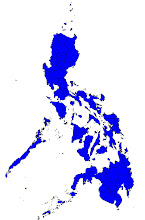http://www.philstar.com/Article.aspx?articleId=540892&publicationSubCategoryId=64
Sen. Manny Villar plans to develop a “competitive culture” starting in government, wherein benefits and promotions will be based on “quantifiable” merit through competition. Former defense chief Gilbert Teodoro vows to implement reforms in basic education, with emphasis on pre-schools. And Sen. Richard Gordon wants to create a meritocracy and make the rule of law prevail, just as he did, he likes to point out, in Olongapo.
Those were some of the plans outlined by the three presidential aspirants at a policy forum yesterday, whose theme was “Philippine credibility and competitiveness in the world.”
The forum was organized by the Carlos P. Romulo Foundation for Peace and Development together with ANC, whose anchor Ricky Carandang acted as moderator. It was held to coincide with the 112th birth anniversary of the late foreign affairs chief, Gen. Carlos P. Romulo, a Filipino citizen of the world before that phrase was coined.
Welcoming guests, Romulo’s son, former foreign affairs chief Roberto R. Romulo, said his father wanted Filipinos “to resist insularity and provincialism,” and “aim to be heard by the rest of the world and have our cause judged in universal terms.”
Among those who joined the Filipino audience at the forum were the heads of the foreign chambers, foreign diplomats and World Bank Country Director Bert Hofman.
Several foreigners have asked me when they would get to hear the plans of the presidential aspirants in connection with investments and international relations.
There has been particular interest in the plans of Villar, who has just started attending forums with his rivals.
Yesterday we heard specific plans, interspersed with some generalized statements and the inevitable political broadsides, to deal with various problems that have contributed to the slide in Philippine competitiveness.
Too bad the candidate leading in the surveys declined to participate. Sen. Benigno “Noynoy” Aquino III, we were told, opted to go on the stump in La Union.
Foreign investors are not voters, but they create the jobs that are badly needed by the country. If there were enough decent jobs, there would be no need for Filipinos to risk being kidnapped in the seas off Somalia or being bombed in Afghanistan to earn decent pay.
Foreign governments and multilateral institutions, meanwhile, provide substantial amounts of aid that the Philippines still can’t seem to do without. Presidential aspirants might not need those non-voters at this time, but their help will be needed by whoever wins.
The other candidate who skipped the morning event, former President Joseph Estrada, reportedly had a scheduling conflict, although we heard that the other schedule was in the afternoon.
With his lackluster showing in surveys, and no suspicion that anyone might resort to fraud to secure his victory, Erap was not missed at the forum as much as Noynoy.
Instead, another former president showed up. Fidel Ramos, the Team Philippines salesman who has become seasoned at working crowds, heckled those who were absent, to the amusement of the audience.
Ramos has not picked a presidential candidate to support, although the buzz is that he is leaning toward Teodoro. Ramos said it was the duty of the aspirants to inform the public of their specific policies if elected.
* * *
Speaking of duties, lawmakers can do their part in improving national competitiveness by passing two bills being pushed by both local and foreign investors during the last nine working session days of the 14th Congress, before the campaign period starts.
These are the Investments and Incentives Code of the Philippines, and the bill creating the Department of Information and Communication Technology.
Businessmen have pointed out that tax holidays and other fiscal incentives are among the major factors that influence decisions on where and how much to invest or expand operations.
The Philippines is competing for those investments with other countries, which currently offer better fiscal incentives.
In terms of income tax holidays, for example, the Philippines offers the shortest break compared to Southeast Asian neighbors Indonesia, Malaysia, Singapore, Thailand and Vietnam.
Hubert d’Aboville of the European Chamber of Commerce of the Philippines noted at the forum that among members of the Association of Southeast Asian Nations, the Philippines received only 4.7 percent of net foreign direct investments (FDI) in the past decade.
Investors have long pointed out the reasons for low FDI in the Philippines, including corruption, poor infrastructure, political and policy instability, security problems and high power rates.
Only Brunei, Burma, Cambodia and Laos received lower FDI in ASEAN, and some of those countries might one day overtake the Philippines, d’Aboville observed. That will not happen, Villar assured d’Aboville.
Whoever wins in May will have to work doubly hard to prevent it from happening. Who would have thought that after only a decade, Thailand would leave us behind, or that Vietnam would creep up on us in terms of economic development?
In 1999, the Philippines received $1.2 billion worth of FDI. Indonesia received less than a billion; Malaysia, nearly $3.9 billion; Singapore, nearly $16.58 billion; Thailand, $6 billion; and Vietnam, close to $1.5 billion. Our share of ASEAN FDI was 4.5 percent.
By 2008, that share had been pruned to a dismal 2.6 percent, with the country getting $1.52 billion in FDI. Malaysia attracted $8 billion; Singapore, $22.72 billion; and Thailand, nearly $10.1 billion.
Vietnam registered a dramatic increase, to $8 billion.
So did Indonesia, which received $7.9 billion in FDI under the leadership of Susilo Bambang Yudhoyono, who was re-elected president last year. This indicates that leadership and good government play key roles in national competitiveness. Let’s hope the right leader is elected in May.




No comments:
Post a Comment